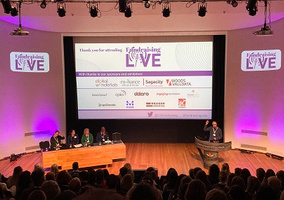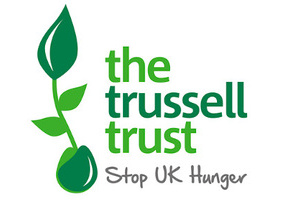The Trussell Trust has said its staff and volunteers are under “immense pressure” amid “ever-growing” need for its services, as the charity reported delivering a record number of food parcels last year.
Figures published today by the food bank charity show it delivered almost three million emergency food parcels in the 12 months to the end of March, up from 2.2 million the year before and more than double the amount five years earlier.
Speaking to Civil Society, the charity’s director of policy, research and impact Helen Barnard said it had been “challenging emotionally” for staff and volunteers and it was “becoming harder to fulfil the need from donations”.
‘Incredibly challenging’
The charity reported that it delivered three million emergency food parcels in 2022-23, with more than one million going to children for the first time.
Its overall total exceeds the second highest amount delivered in 2020-21 (2.6 million) and is more than double the number distributed in 2017-18 (1.4 million).
Asked about the impact on the charity’s workforce, Barnard said: “It’s pretty immense pressure on both staff and volunteers. People are telling us that they are really, really tired.
“We’ve been through the pandemic – that was really tough. We then went straight into the cost-of-living crisis. But actually, the increase we’re seeing this year is part of a longer-term trend, where need is going up steeply.
“All of our food banks and our volunteers – they’re trying to keep up with this ever-growing level of need. And it is incredibly challenging, practically and logistically.”
Barnard said the charity’s local members had found that it was “becoming harder to fulfil the need from donations” of food.
“We are seeing food banks having to buy food, because the level of needs they’re facing is so high, that donations just can’t keep up,” she said.
“A real challenge for a lot of our food banks is just making sure they have got the kind of food they need to get to support people.”
Campaigning for preventative measures
The charity is lobbying the government, alongside the Joseph Rowntree Foundation, for an increase to Universal Credit payments by at least £35 a week to cover the cost of essential items for a single person.
Barnard said it was important for the charity to continue its campaigning work despite having stretched resources.
“My sense is that the level of need we’re seeing really fuels people’s commitment to try to go to the root causes,” she said.
Barnard said she was “particularly hopeful” about the level of public support for the charity’s current campaign, including voters from across the political spectrum.
Prime minister Rishi Sunak even said as chancellor that he wished “they didn’t have to exist”, chiming with the charity’s ultimate aim to end the need for emergency food in the UK.
“It is very striking to hear people at every point of the political spectrum, agreeing that this is not something that should exist in our country”, said Barnard, adding “that’s very unusual”.











